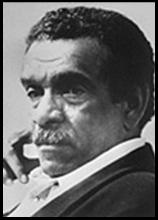
Online Texts for Craig White's Literature Courses
|
The Season of Phantasmal Peace (1981) by |
|
|
Then all the nations of birds lifted together |
|
|
And
men could not see, looking up, what the wild geese drew, |
|
|
of a child fluttering to sleep; |
|
|
|
it was the light 20 |
|
that you will see at evening on the side of a hill |
|

Discussion questions:
1. Objective 2b. To extend genre studies to film and poetry (esp. Derek Walcott of St. Lucia, West Indies [b. 1930; Nobel Prize for Literature, 1992]).
If the novel is the primary genre of colonial-postcolonial dialogue, how does lyric poetry change the appeal of postcolonial literature? How is that appeal distinct from or supportive to the novel?
Consider applying the song-like qualities of lyric poetry to "Season of Phantasmal Peace."
2. How does re-imagining nations of people as "nations of birds" disarm nations' potential conflict regarding borders, migration, etc.?
2a. How do birds reinforce the strengths of the lyric poem?
2b.How does the poem's image of "the net" serve as a possible symbol for dialogue or exchange? How might this symbol be re-translated to an electronic network not widely available or known in 1981?
3. A skeptic might dismiss the poem's hope for a change of light or season as "phantasmal," imaginary, or illusory, but how might lyric poetry defend such visions?
3a. Similarly, why must poetry treat the encompassing beauty witnessed here as transient, fleeting, or momentary? How may such a lyric moment imply a larger narrative, whether of evolution or apocalypse?
